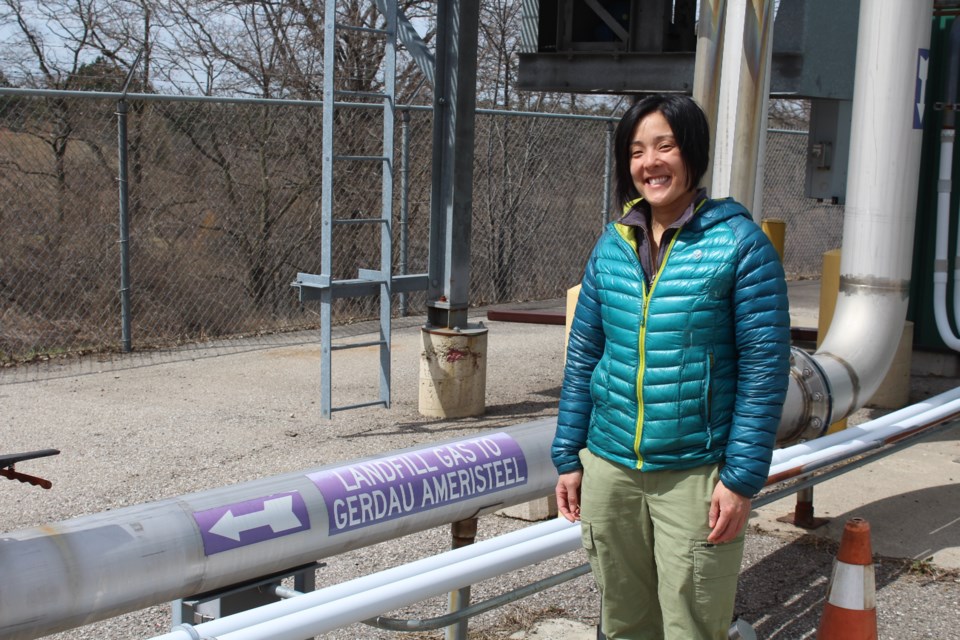The Cambridge landfill may have stopped accepting on-site waste disposal in the early 2000s, but one Cambridge business is still utilizing it to reduce their environmental footprint.
Gerdau AmeriSteel, a steel manufacturing plant on Orion Place, has been using landfill gases to subsidize their natural gas source for over 20 years.
It all started when the company responded to a proposal sent out by the Region of Waterloo. After a successful bid, the two worked together to come up with the initiative of reusing the gas that would otherwise be flared out or escape into the environment.
“Given landfill gas is a greenhouse gas we looked at the best way to utilize it as an energy source,” Jon Arsenault, director for waste management for the Region of Waterloo, said.
“We have requirements to capture landfill gas. This partnership came up and made a lot of sense for both parties as they were interested in offsetting their natural gas use.”
Landfill gas is typically comprised of methane, carbon dioxide, water vapour and other trace gases, many of which can have a negative impact on the environment.
In order to extract the gas into a usable source, Gerdau installed a network of pipes to transport it to a location where it can be filtered.
Once filtered it’s blended with the natural gas and sent into their reheat furnace. From there, the furnace is used to heat up steel to rolling temperature in order to shape it into a variety of products.
“When the partnership was initiated I think the offset was significant,” Arsenault said.
“It’s a simple process as it’s a direct injection. The landfill gas mirrors natural gas quite closely.”
According to Gerdau, at one point in time the landfill gas supplied approximately 30 per cent of the fuel used for the reheat furnace. However, since the landfill stopped accepting on-site disposal two decades ago that percentage has declined.
Last year, the gas provided seven per cent of the energy input.
The amount of gas that remains viable will continue to decline over time, with the contract between Gerdau and the region set to expire in 2028.
“It will eventually become less efficient to collect and utilize,” Arsenault said.
“Over time the flow has depleted. Our current contract goes to October 2028 and we'll reassess whether its worthwhile to continue on.”
No matter what the future of the initiative is, the impact on the environment has been significant.
Gerdau says that the landfill has provided roughly 1,900,000 gigajoules of energy, or approximately the amount of natural gas used in over 20,000 Canadian homes for a year.
"The process results in the productive use of landfill gas that could otherwise be wasted," a Gerdau spokesperson said.
"It has the added benefit of reducing the consumption of natural gas, resulting in a net reduction in greenhouse gas emissions."
In 2022, despite the declining usage, around 3,300 tons of greenhouse gases or carbon dioxide equivalents were captured.
“Methane gas is known to be about 25 times worse as a greenhouse gas, and is one of the more impactful on the environment,” Arsenault said.
“We’re best suited to try and capture and utilize it. It’s similar to a fuel source.”
The local business calls it a “win-win” for both their productivity and the region's environmental impact goals. The region also generates value from the landfill in the form of a royalty.
“There’s legislation in place for landfill gas collection systems but we've taken it beyond that,” Arsenault said.
“For Gerdau, they're offsetting, using all natural gas that would increase their carbon footprint and we’re always looking at ways of generating and utilizing organic matter. It’s great that the public sector and private sector can come up with these arrangements."



